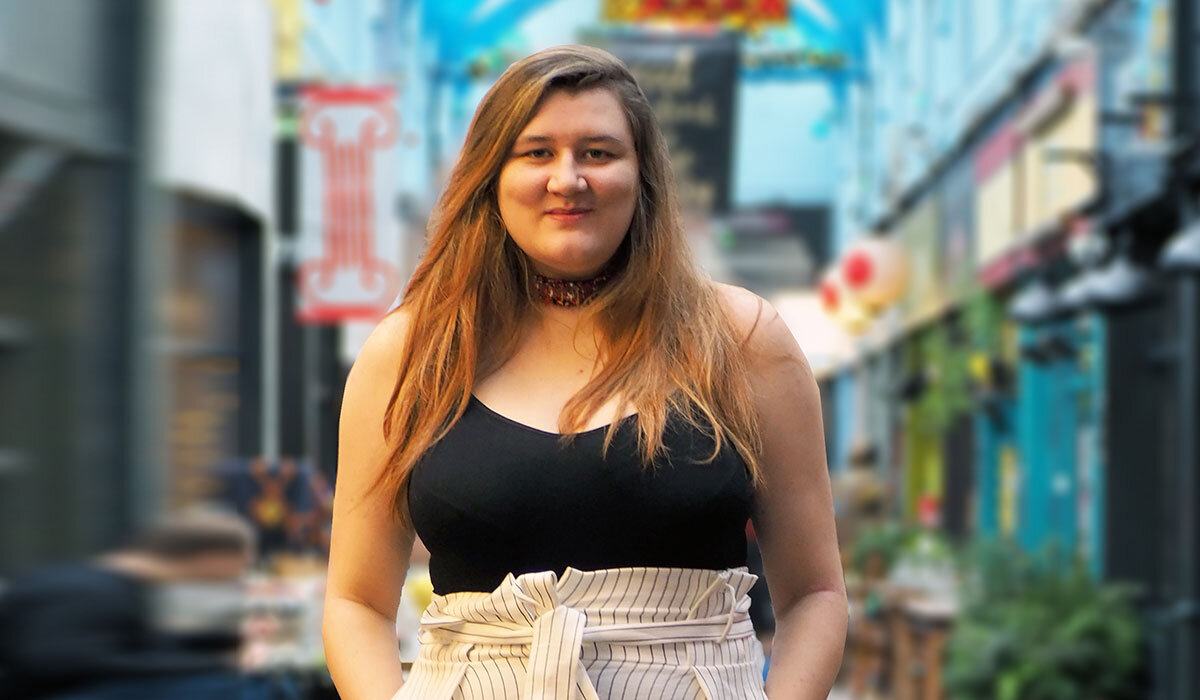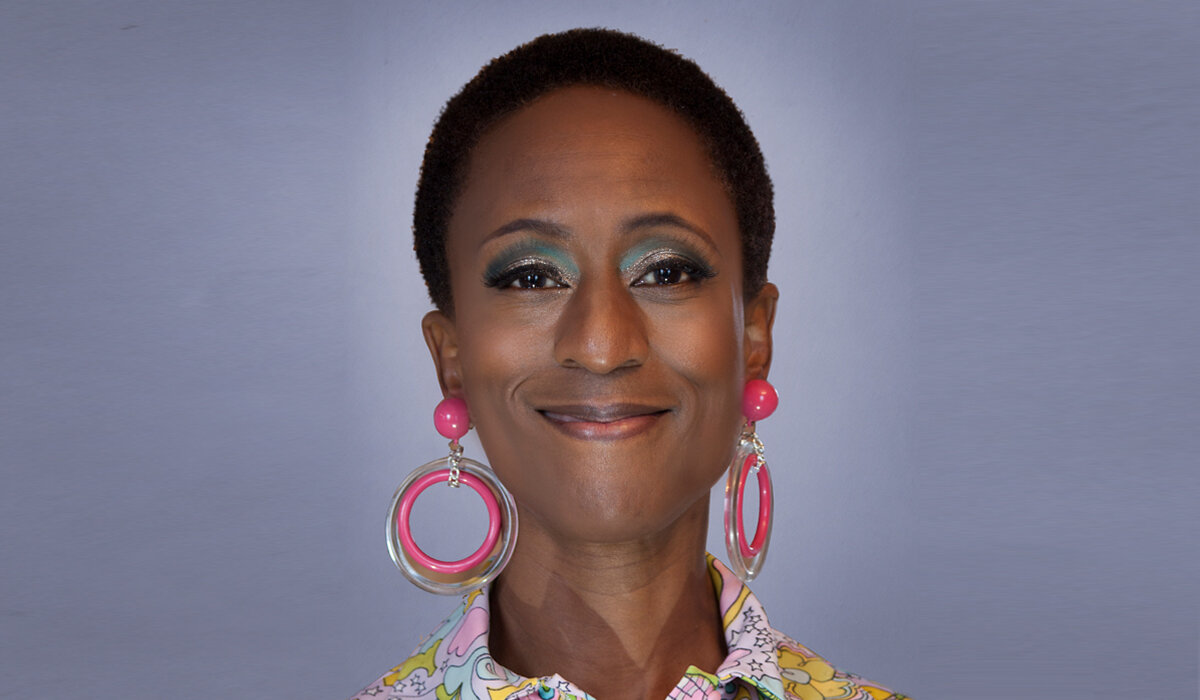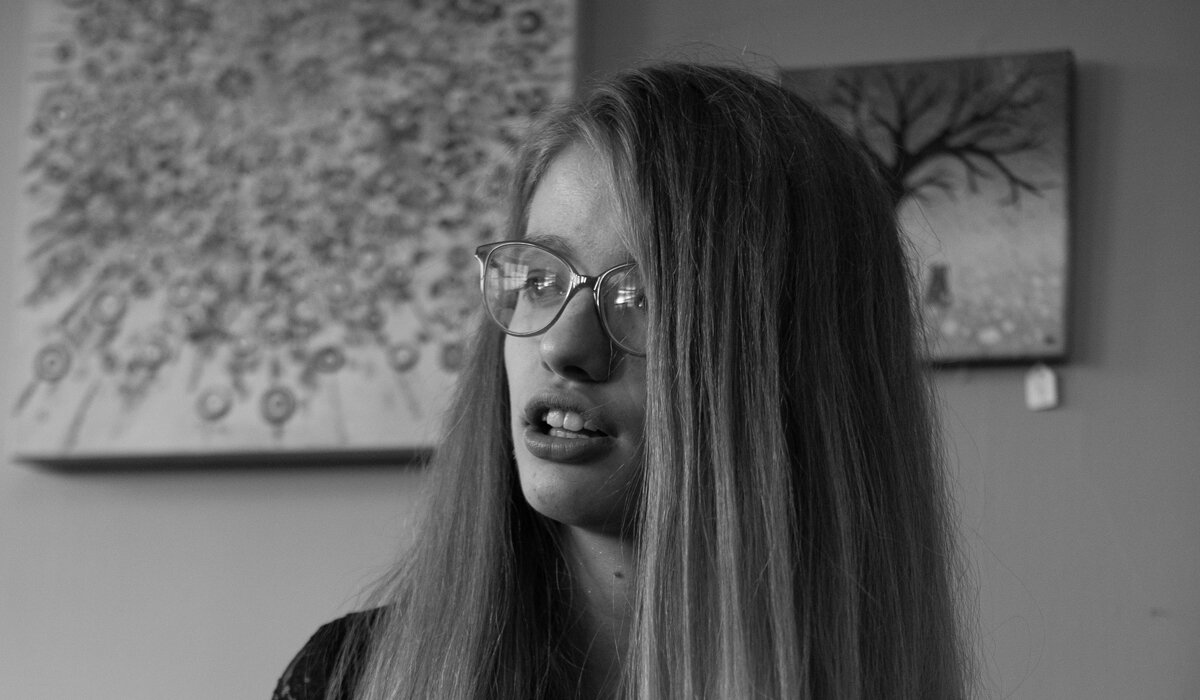
"I will continue to write about neurodivergent people and will never tire of it."
Elle McNicoll
- on writing her novel 'A Kind of Spark'
Stories from the Spectrum: Elle McNicoll
In this Stories from the Spectrum feature, we heard from Elle McNicoll.
We caught up with Elle McNicoll, autistic woman and author of A Kind of Spark. A Kind of Spark is a new children's middle-grade fiction novel published by Knights Of. Set in a quiet Scottish village, the novel tells the story of Addie, a young autistic girl who uncovers an unsettling secret about her village’s past.

Elle writes about her own autism diagnosis, the inspiration behind her bewitching debut novel, and turning over a new page for autistic characters.
My memories of diagnosis are vague because no one sat me down to explain what was happening. I remember struggling at school. I wanted to be everyone’s friend, but no one wanted to be mine. I was told I was weird and strange and that there was “something wrong with me”.
I started at a new school when I was ten-years-old. I couldn’t seem to get onto the same wavelength as my new peers. I spent lunchtimes in the library, reading books by myself in the quiet. The sensory peace was a balm after loud classrooms, but I was told off by playground monitors for being a loner and not making an effort with the other children. I didn’t have the fortitude to explain that I had tried everything.
I was sent to handwriting workshops, counselling sessions, appointments to work on my motor skills, occupational therapy and, finally, the hospital. Where I went through tests and questioning.
I internalised every single moment of this. I felt shamed, deeply ashamed that I was unable to fit in. In every session, every test, every therapy appointment—nobody said, “This isn’t your fault. Some people are just different and you might be one of them”. It might have saved me years of anxiety if they had.
Shame is a cold and twisted knot that takes a lot of time to undo. More so when you can't fully communicate or articulate the shame. When my diagnosis was revealed, it was never really talked about again. My parents were afraid of labels and the perceived limitations that might come from them.
So, I grew up masking. Using creative projects to hide my real self in. Fragments in stories for English lessons. I hid so much of who I was and it became easier to find social groups to float with. But I was never able to explain to them why clubbing was a sensory nightmare that sent me into a meltdown. Why eye contact was painful. Why I found meeting new people and mixing in large groups of people enormously stressful.
My debut novel, A Kind of Spark, was published in June. Its existence is something of a miracle, something that I thought was impossible for most of my life. I’ve had teachers rip my work to pieces in front of me, because my motor skills made my handwriting difficult to read. It’s a scene recreated in the book and one that many people have cited as similar to their own experience.
I’ve filled the book with all of the pain, hope, frustration, joy, shame and electricity of being a neurodivergent child. It’s incredibly positive. Joyous. But truthful.
Addie is an eleven-year-old autistic girl in a small Scottish village. She has a fascination for sharks and marine life, and a deep love of books. But she struggles to maintain friendships at school, and her new teacher seems to have it in for her. One day, during a history lesson, she discovers that her small town once executed women for the crime of witchcraft. It becomes an immediate special interest for Addie. With the help of her older sister Keedie and her new friend Audrey, she starts campaigning for a town memorial to be built. It’s a story about the underdog, justice, friendship, community, family and following your own path.
I wanted to write an autistic heroine who had agency. A drive. A strong moral compass. An enormous heart. Because that is my experience. I’m tired of books about autistic characters that don’t centre autistic people. Where they are made to seem like burdens. Where they are told that their families love them, just not their autism. That they need to be cured or fixed. I’m tired of those narratives.
So, I wrote the opposite. My book shows autism for what it truly is. A neurological difference that affects everyone in specific ways. Not a superpower, not a curse. Just an alternative reflection of the human condition.
I realised upon receiving the life-changing news that I was about to be a published author, that everything was going to be different. There could be no more hiding. No more silence when someone says something ignorant. No more rising above crude assumptions and hurtful stereotypes.
To all the autistic children who are told they are too much of one thing or not enough of another, I would say—laugh. Laugh at the narrow minds and move on. If you’re a writer, write. If you’re an artist, make art in the way only you can. Tell the truth unapologetically and shine. You’ll never find happiness in the shadows.
My current projects, apart from A Kind of Spark, also feature many neurodivergent characters. I like to tell people who are confused by that, ‘I will continue to write about neurodivergent people and will never tire of it.’ I will write about neurodivergence for as long as people don’t truly understand the beauty of that word.
"I will continue to write about neurodivergent people and will never tire of it."
A Kind of Spark by Elle McNicoll is out now, published by Knights Of, £6.99 paperback original.
Kayleigh reviews 'A Kind of Spark'
Kayleigh, autistic woman and contributor to the Spectrum magazine, reviews A Kind of Spark in issue 105 of the Spectrum.

Similar stories

"I want to inspire autistic girls out there with a strong autistic heroine."
Patience Agbabi
- on writing her novel 'The Infinite'
Read more

"I wrote about my Asperger syndrome to help people understand what life on the spectrum is like."
Ella Sanderson
- on expressing herself through poetry
Read more

"Understanding that the way I process world is different made me realise the ways I had been treated in the past were not my fault."
Peter Street
- on his late autism diagnosis
Read more

The Spectrum magazine
Explore one of the UK's largest collections of autistic art, poetry, and prose. The Spectrum magazine is created by and for autistic people, and is available both online and in print.
Read the Spectrum





You are not alone
Join the community
Our online community is a place for autistic people and their families to meet like-minded people and share their experiences.
Join today